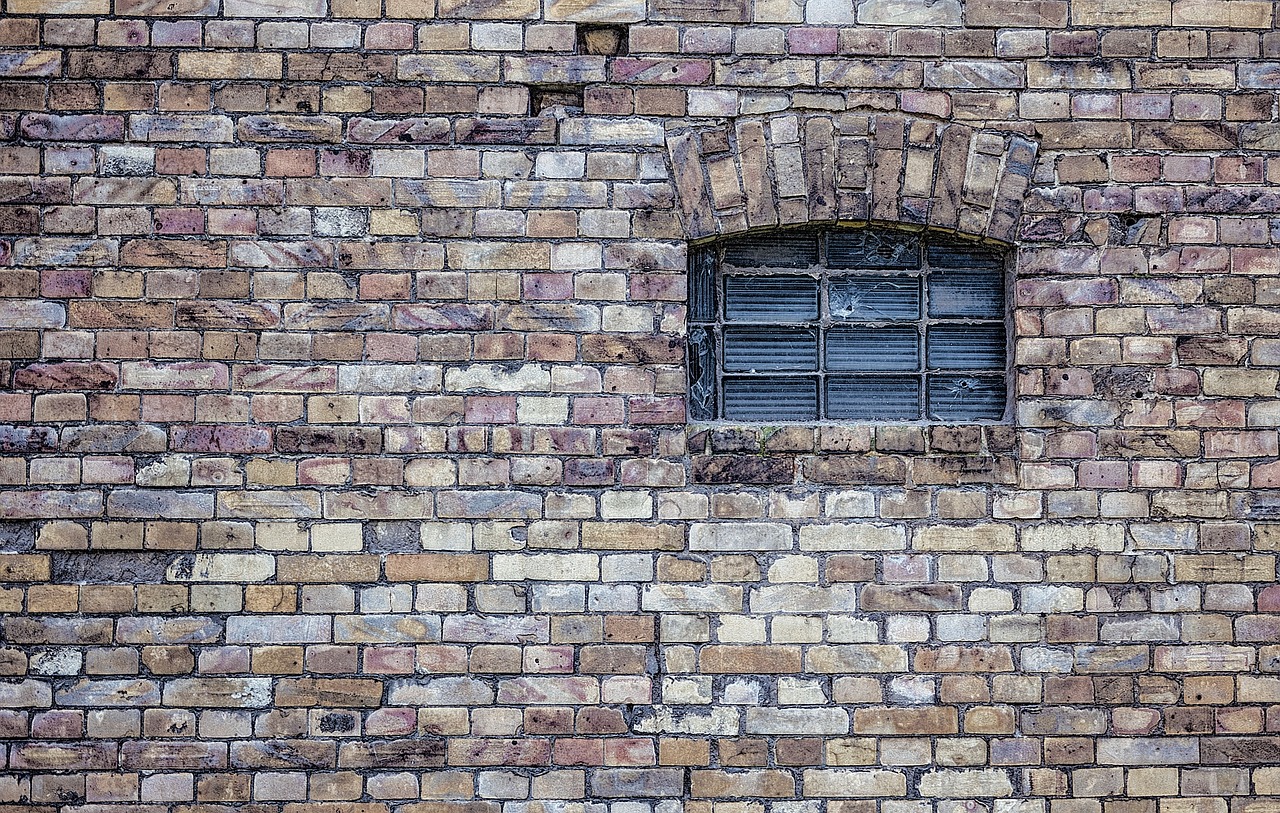Foundation Crack vs. Cosmetic Crack: Expert Advice from Set In Stone Rhode Island Masonry Foundation Specialist
Every homeowner will likely encounter cracks in their home at some point. But not all cracks are equal. Some are mere cosmetic blemishes, while others hint at deeper foundation issues. Distinguishing between the two is vital to ensure your home’s safety and to avoid unnecessary costs. As a leading masonry foundation specialist in Rhode Island, Set In Stone offers valuable insights into recognizing and addressing these cracks.
Understanding the Cause of Foundation Cracks
Foundation cracks are more than just unsightly lines on your walls or floors; they can signal serious structural issues in your home. Distinguishing between cosmetic and foundation cracks is essential, and here’s what you need to know about the latter:
Definition and Characteristics
Foundation cracks directly impact the structural integrity of a building. They often appear wider than 1/8-inch, can have an uneven or jagged appearance, and might expand over time.
Potential Causes
These foundation cracks can emerge due to various reasons such as soil movement, water damage, poor drainage, or even the natural settling of a house. Areas prone to seismic activity might experience foundation cracks exacerbated or caused by minor tremors.
Implications of Foundation Cracks If Not Addressed
If foundation cracks are left unchecked, they can result in significant structural damage. Walls can start to bow or lean, doors and windows might not close properly, and in severe cases, parts of the home could become uninhabitable. However, with proper help from masonry foundation specialists such as Set in Stone, these implications can be repaired and avoided.
Manifestation in the Home
While foundation cracks can appear anywhere, they’re most commonly spotted in basements, crawl spaces, or near the ground level of homes. Horizontal cracks in walls or stair-step cracks in bricks or blocks are particularly concerning.
By recognizing these foundation issues early and seeking professional advice from foundation specialists, homeowners can ensure the longevity and safety of their abode.
The Cosmetic Crack Explained
When homeowners spot a crack in their home, the immediate fear is often that it’s indicative of a foundational issue. However, many cracks are purely cosmetic. Here’s a closer look at these more benign blemishes:
Definition and Characteristics
Cosmetic cracks are superficial cracks that don’t pose a threat to the structural integrity of a home. They’re typically thin, uniform in width, and don’t show signs of growth over time.
Common Reasons Why Cosmetic Cracks Occur
Cosmetic cracks can be attributed to a variety of non-structural causes. Factors like temperature fluctuations, minor settling over time, or even the drying process of paint or plaster can lead to the formation of cosmetic cracks.
Why They’re Less Concerning
While no homeowner loves the sight of a crack, cosmetic cracks are generally not a cause for alarm. They don’t suggest deeper structural issues and are more of an aesthetic concern than a safety one. Often, a simple touch-up with paint or plaster can make them disappear.
It’s worth noting, however, that while these cracks aren’t problematic on their own, it’s essential to accurately identify them. Contacting your local foundation specialist at Set in Stone can help you better navigate the situation as mistaking a foundation crack for a cosmetic one can have serious repercussions.
Comparing Foundation and Cosmetic Cracks
At first glance, any crack on your wall or floor might seem alarming. But understanding the differences between foundation and cosmetic cracks can save homeowners from unnecessary stress and expenditure. Let’s break down the key distinctions:
Appearance
Foundation cracks tend to be wider, often exceeding 1/8-inch, and may have a jagged or uneven appearance. In contrast, cosmetic cracks are usually thinner, more uniform, and don’t change significantly over time.
Location
Foundation cracks frequently appear in areas like basements, crawl spaces, or close to the ground level. They can manifest as horizontal cracks in walls or stair-step patterns in bricks. Cosmetic cracks, on the other hand, can appear anywhere, often near doorways or windows or along the seam where walls meet.
Potential Risk
While cosmetic cracks are primarily an aesthetic concern, foundation cracks indicate potential structural issues. Ignoring them can lead to significant repair costs in the future and might even compromise the safety of the home.
Quick Checks
One simple way to gauge the severity of a crack is to try to slide a dime into it. If the dime fits easily, it’s likely a sign that the crack is more than just cosmetic. Additionally, homeowners can monitor the crack over a few months. If it grows wider or longer, it’s crucial to seek professional advice from a foundation specialist.
Remember, while these guidelines can help in the initial assessment, when in doubt, always consult a masonry foundation specialist like Set In Stone. Accurate identification ensures the right solutions.
What To Do When You Spot a Crack
Discovering a crack in your home, whether on a wall, floor, or ceiling, can be unsettling. However, taking prompt and appropriate action can prevent minor issues from becoming significant problems. Here’s a guideline on the steps to consider:
Immediate Steps:
- Document the Crack: Take clear photos of the crack, ideally with a ruler or another object for scale. This documentation can be valuable if you need to monitor its progression or consult with a foundation specialist.
- Avoid DIY Fixes Initially: It might be tempting to patch up the crack immediately, especially if it seems minor. However, without understanding its root cause, this can be a temporary fix that masks a deeper issue.
- Check for Other Symptoms: Look for other potential signs of foundation issues, like sticking doors or windows, gaps between the wall and the ceiling or floor, and uneven floors. Multiple symptoms can be a clear indicator of foundational problems.
When to Call a Masonry Foundation Specialist
If the crack is wide, grows over time, or if there are multiple symptoms suggesting foundation issues, it’s time to seek expert advice. A masonry foundation specialist can provide an accurate assessment, ensuring that any underlying problems are addressed.
Preventive Measures
The best way to address foundation issues is to prevent them from occurring in the first place. While it’s impossible to eliminate all risks, especially given the unpredictable nature of factors like soil movement and weather patterns, there are steps homeowners can take to minimize potential problems. Here are some preventive measures to consider:
Maintain Proper Drainage
Water is one of the most significant threats to a foundation. To ensure proper drainage for your foundation, be sure that your home’s gutters and downspouts are clean and directing water away from the foundation. Additionally, the slope of your yard should encourage water to flow away from your home, not towards it.
Regularly Inspect for Foundation Cracks
While not all cracks are indicative of foundation issues, regularly inspecting your home can help spot potential problems early. Check basements, crawl spaces, and the ground level areas of your home at least once a year.
Monitor Trees and Vegetation
Large trees or shrubs planted too close to your home can cause foundation cracks and problems as their roots grow and potentially interfere with your home’s foundation. While trees add beauty and value to a property, it’s essential to plant them at safe distances and monitor root growth.
Avoid Rapid Changes in Soil Moisture
Keeping soil moisture consistent can help prevent it from expanding and contracting, which can impact the foundation. Avoid over-watering your yard and consider using soaker hoses during prolonged dry spells.
Consider Foundation Inspections and Consultations with Foundation Specialists
For homeowners living in areas prone to seismic activity or with histories of soil movement, regular foundation inspections can be beneficial. A masonry foundation specialist like Set In Stone can offer invaluable insights and recommendations tailored to your home’s specific needs.
By implementing these preventive measures, homeowners can take proactive steps to protect the structural integrity of their homes and avoid the potential headaches and costs of foundation repairs.
Contact a Rhode Island Masonry Foundation Specialist
No homeowner wants to grapple with the uncertainties of foundation issues. However, armed with the knowledge to differentiate between cosmetic and foundation cracks, and understanding the right steps to take when a crack is spotted, you can navigate such situations with confidence.
Every home is unique, and its foundation challenges vary. What remains consistent is the importance of timely action and the value of professional expertise. When in doubt, lean on the seasoned professionals. At Set In Stone, we stand ready to assist Rhode Island homeowners, bringing our vast experience as a leading masonry foundation specialist to every project.
Remember, your home is not just a structure; it’s a sanctuary. Protecting its foundation ensures its longevity, safety, and the peace of mind of those within.






